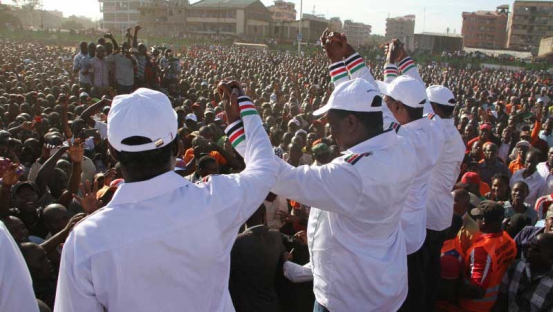×
The Standard e-Paper
Home To Bold Columnists

We are now in the election season. ODM party primaries kicked off Thursday and are expected to go on until mid next week, while Jubilee Party will begin its nominations on Friday.
Going by past experiences in some counties and constituencies, this is the most acrimonious stage of electioneering, with the stakes even higher than the actual election in August. Once you have secured the ticket of the “dominant” party in the region, you are almost assured of a victory.